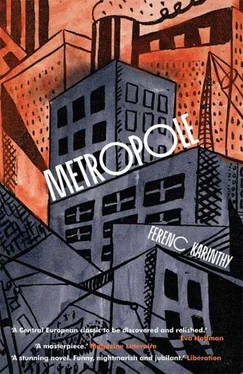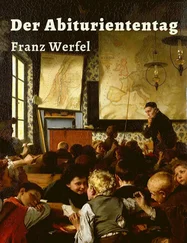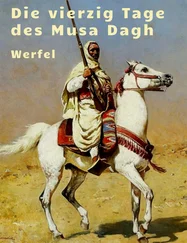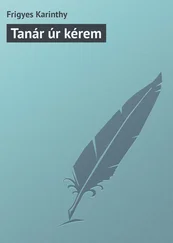It was the waist-coated, bowler-hatted black man in the chequered jacket that climbed up next. He spoke no more then six or seven words, then pulled a mocking face, slapping the elephant’s trunk as he did so. What he said must have been amusing and clever because it was greeted with a great deal of laughter. They didn’t want him to get off. He kept bowing and pulling faces, thanking the crowd for their appreciation. Even Budai was laughing: the whole thing was so funny he simply couldn’t help it.
The next speaker was a soft, smooth-faced figure in glasses. No sooner had he started than he was greeted with whistles and cries of fury. He waited till they calmed down a little, then continued. He must have been giving some kind of explanation and though he was mocked and shouted down time and again he rode the crowd’s disapproval, pleading with them to at least hear him out. The more it went on the more he seemed to be begging and promising things and the more angry the crowd grew. They cursed him, waved fists at him, warning him to leave off, even throwing empty bottles at him. His voice was drowned out in the noise. Budai too was indignant, fed up with the idiot’s smooth line of argument and was shouting as loud as he could with the rest.
‘Get down! Enough! What do you want! Go on, scram, kick him out!’
Eventually he was dragged from the pedestal and chased away by some youths. He should be glad to escape a good beating!
Other speakers appeared, among them the big woman in the bright yellow dress whom he had noticed in the procession. She was carrying a basket on her arm from which she distributed badges and cockades. People greedily grabbed them, practically fought each other for them. Budai was standing too far off to get one. The only thing he understood in all this was that the badges reminded him of certain ladybirds, the black ones with red spots or the red ones with black spots. The woman pinned one on her own breast and the crowd once again cheered and grew merry, crying loud huzzahs and drumming their feet on the pavement. And they fell to singing again, all of them together.
Then a priest ascended the pedestal in full cape and mitre, very like the one he had seen in the church with the dome. He unfurled a flag, one with red and black stripes, the same colours as on the badges and cockades, bearing the central motif of a bird with outstretched wings — might it have been a starling? — the flag so enormous, so wide, that he was unable to extend it himself without the help of two ministrants in surplices. The priest said a brief prayer, then was passed a censer that he swung in the direction of the flag, letting it swing to and fro, enveloping the flag in thick white smoke that might have symbolised a blessing or a consecration… The crowd was overcome with veneration, many were deeply moved. Some people were in tears and those who could get near enough kissed the edge of the flag while others fell to their knees in worship or threw themselves to the ground in front of it.
Sirens suddenly started wailing from various directions. Ambulances? Fire services? The police? Hearing the sound, the entire crush began to break up, running off this way and that, filling up the surrounding streets again. The section in which Budai was trapped made for the wide gates of the great buttressed castle nearby, gates normally reserved for cars, and flowed through. Whichever way they went, shops brought down their shutters. Traffic was at a standstill, buses and cars parking at the side of the road, the passengers spilling from them to join the ranks of those who had been part of the procession. Bells were ringing in the distance and a horn was constantly sounding, the kind of horn that normally brings an end to a day’s work at a factory.
He found himself at the building site with the skyscraper, the one whose floors he had so often counted, but he had no time for that now. The construction workers had in any case started to leave the building as soon as the remnants of the procession came into view. They were descending by lift and ladder. Cranes and all other machinery stopped working: the high steel frame, the walls, the platforms emptied. Everyone engaged on the building joined the mass below, coming just as they were, in paint-stained overalls, with paper hats on their heads and so the wave of humanity swelled and grew. What was this? A general strike?
Posters still fresh and wet on the walls bore messages with huge letters. Groups read and debated in front of them. The human flood swallowed them too and was soon joined by residents of the wayside houses and the hordes emerging from the steps of the metro with its yellow barriers. In the meantime someone was rasping something through a microphone, the voice cracking and babbling as if it were trying to communicate urgent instructions. It met with a hostile reaction. The protesters grumbled, cried out in hoarse voices, turned disorderly and started pushing and shoving. Another stream joined them at the next crossroads. There were bottlenecks and vortices, lines got mixed up, people cut across each other, trod each other down in the confusion. And still the amplified voice crackled on.
Budai’s heart leapt for a moment: he thought he saw Epepe on the other side of the road. It was a second or two, no more, perhaps less than that. Her blonde, blue-uniformed figure stood blindingly clear of the crowd, Or was it simply the blonde hair, the blue uniform and the familiar build that made him think it was her? Was it someone else? No sooner had she appeared than she was gone and however Budai struggled to reach her, he couldn’t see her anymore, nor anyone who looked the least bit like her, though it was perfectly possible that those on her side of the road had been shoved aside.
The failure did not crush him. He had not given up hope that he might catch sight of her again in the crowd despite its arbitrary turns and shifts. Hope spurred him to action, encouraging him to take real part in whatever was going on here, to go where the others went, to do as they did, to share their fates, adopt their causes, to fight tooth and nail with them.
He tried to grasp and learn the songs they were singing. Most of the time it was a stirring rapid march, one he had heard before so not just the melody but even the words had stuck in his memory, that is in as far as he could make it out. It sounded something like:
Tchetety top debette
Etek glö tchri fefé
Bügyüti nyemelága
Petyitye!
The last word tended to come out snappish and short accompanied by either fury or laughter. They song was defiantly repeated as if to threaten or annoy, as though the singing of it had long been forbidden. There was a very thin young man with an abundance of hair who kept it going: if others stopped singing it he would start it up time and again, conducting them with his long arms until everyone near him took it up. It became intoxicating after a while: people were drunk on their own voices as though they felt — and Budai felt it too — that they were accomplishing something important by singing it. This happy confidence bubbled through them like the fizz in soda: together, they felt, they could overcome anything: nothing could stop them, they were all-conquering heroes. And this led them into ever wilder excesses of joy. They embraced strangers, they kissed each other, they danced and clapped and shouted: they seemed to float on its energy.
Next to Budai a silver-clad girl with golden-brown skin and a head of woolly black hair was beating a drum. She must have been part of the procession when it was at its orderly stage, one among many girls in silver who only later melted into the crowd. She can’t have been much more than fifteen but she beat her drum tirelessly, her face transfigured by a passionate enthusiasm, so much so that she was almost beside herself, the whites of her eyes prominent, her gaze fixed somewhere above. Budai could not help thinking that though still a child she would have no hesitation in offering up her life if it became necessary.
Читать дальше












